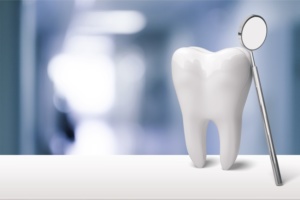 Many people underestimate the major role that fluoride plays in dental hygiene and in overall oral health. But the truth is, many of the small habits you engage in throughout the day contribute to your oral health, and fluoride intake is no exception. If you’re looking to increase your fluoride intake, it’s easier than you think. Here are just a few dos and don’ts to keep in mind to improve dental health through increased fluoride intake.
Many people underestimate the major role that fluoride plays in dental hygiene and in overall oral health. But the truth is, many of the small habits you engage in throughout the day contribute to your oral health, and fluoride intake is no exception. If you’re looking to increase your fluoride intake, it’s easier than you think. Here are just a few dos and don’ts to keep in mind to improve dental health through increased fluoride intake.
DO: Use fluoridated toothpaste and mouthwash
Many people assume that all types of toothpaste have fluoride, but that’s not the case. Plus, some types of toothpaste and mouthwash have much higher fluoride content than others. That being said, it’s important to ensure that all of your dental products contain fluoride at a safe level.
DON’T: Neglect water bottle labels
One 2012 study in the Journal of Pediatric Dentistry found that more than 65% of parents using bottled water did not know what levels of fluoride it contained. But it goes without saying that drinking fluoridated water bottles and tap water can significantly help to boost fluoride intake as a whole. That being said, it’s essential to get yourself into the habit of checking water bottle labels for fluoride content.
DO: Consider professional fluoride treatments from your dentist
It’s true — in addition to increasing fluoride intake through water and dental hygiene products, you can go directly to perhaps the most reliable source: your family dentist. This treatment may not be suitable for children, but for adults, it can help to keep teeth enamel strong and durable with just one treatment session.
DON’T: Neglect dentist’s advice
Finally, make sure to visit your dentist twice per year as recommended by the ADA. Your dentist can tell you the true condition of your teeth with just one cleaning, and they can let you know whether or not increased fluoride intake is necessary in the first place. There are plenty of other types of dental health treatments that may be right for you based on the current condition of your teeth and gums.
Ultimately, it’s up to you to develop proper dental hygiene habits in your household. For more information about family dentists, contact Smilez Pediatric Dentistry.
